Among the porcelain of the Song Dynasty, black porcelain is best represented by Tenmoku. In Japan, Tenmoku is considered a national treasure, and there are four such tea bowls. They appreciate the mysterious and ever-changing patterns on Tenmoku, pursuing a sense of depth and emptiness that is reminiscent of the night sky and the night itself. However, a friend recently asked, "I just bought a Tenmoku, but after rinsing it several times, I found that whether I used hot water or tea, there was still a slight earthy smell when drinking tea. Why is that? How should I deal with it?"
Actually, this question needs to be divided into two parts, as the treatment methods for new and old Tenmoku are different.
- New Tenmoku
For Tenmoku, it is not as complicated as opening a purple clay teapot. It only needs to be cleaned before use. You can use toothpaste or a cleaning cloth to wipe it, then rinse it with clean water, and soak it in hot water or tea soup for at least half an hour. Because Tenmoku may have gone through different people's hands from production to sale, to use it with more peace of mind, it is recommended to boil it in hot water for a few minutes.

A small suggestion:
- Usually, after drinking the last cup of tea, rinse Tenmoku with hot water to remove any tea stains that may be attached to the glaze surface. Then, allow Tenmoku to air dry naturally in a ventilated area. You can also use a dedicated tea cloth to wipe it clean.
- It is recommended to do a comprehensive cleaning (using a cleaning cloth or toothpaste) every three to five days.
-
Old Tenmoku

Actually, "old Tenmoku" here refers to "excavated old Tenmoku." Some Tenmoku enthusiasts are particularly fond of excavated old Tenmoku. However, excavated old Tenmoku has been buried in the soil for a long time, and the natural taste of the soil will also enter the Tenmoku, affecting the taste of the tea soup. So how can we minimize this "earthy smell"? The following methods can be tried by Tenmoku enthusiasts:
- Soak the Tenmoku body slightly in a diluted solution of vinegar in the appropriate proportion.
- Prepare two toothbrushes, one soft and one hard, and a piece of scrubbing cloth.
- Add an appropriate amount of table salt to clean water, and use a scouring pad dipped in water to clean the main dirt stains on the bowl body first.
- Use a hard-bristled toothbrush to clean stubborn dirt until it disappears.
- Use a soft-bristled toothbrush to clean the mud and dirt in the detailed parts.
- After repeatedly washing with clean water and observing with the naked eye that there is no obvious dirt, place the Tenmoku in a pot of boiling water. Keep it simmering on low heat for half an hour. This can be repeated several times, but remember to change the water.
- Take out the Tenmoku and let it cool to room temperature, then soak it in cold water. Repeat the above steps (you can use a clean tea towel to wipe the Tenmoku during this period).
A small suggestion:
(1)Not all so-called "old teaware" can be used for tea drinking. Try not to use those brightly colored and obviously modern imitations of "old teaware" for tea drinking.
(2) Excavated teaware has been buried deep in the soil for thousands of years, and the glaze surface is inevitably tarnished and flawed due to long-term erosion by the soil. Moreover, many Tenmoku buried in the soil are basically defective due to various reasons. Therefore, we should not be too demanding of its perfection.


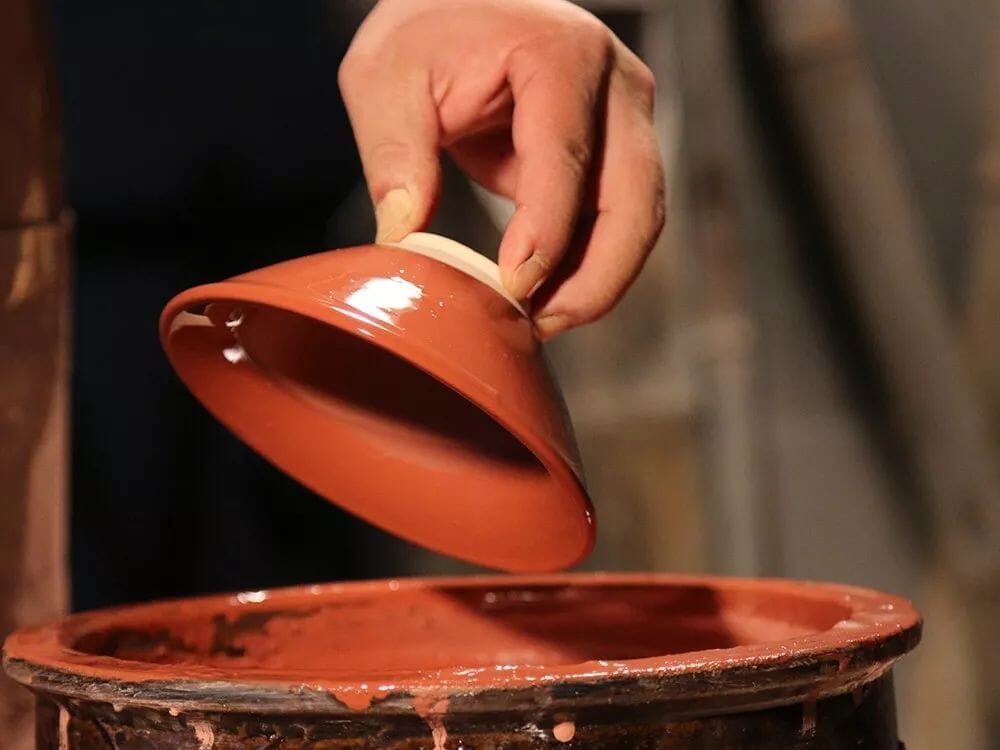
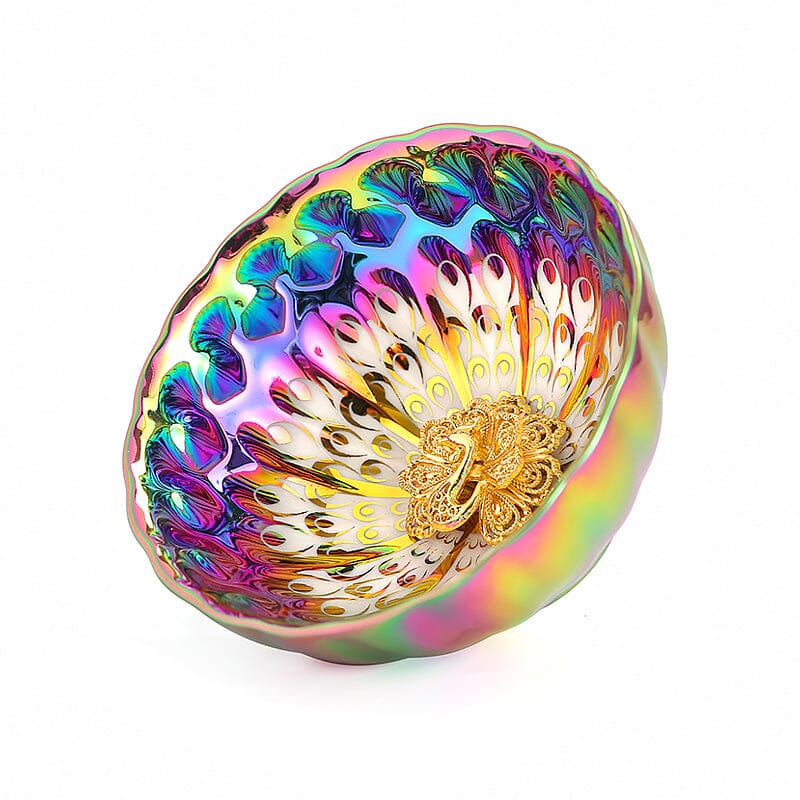
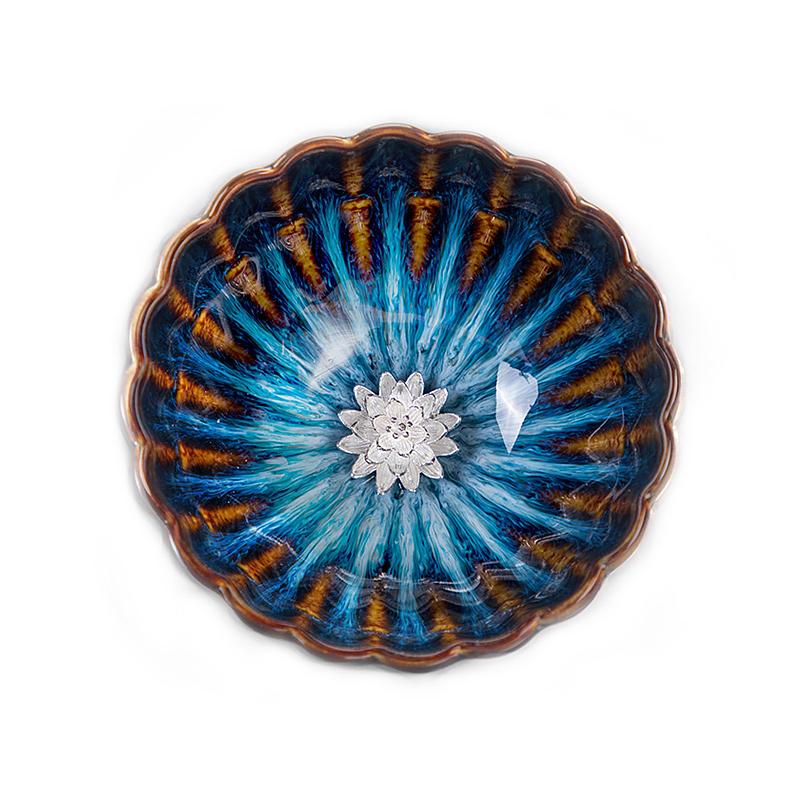
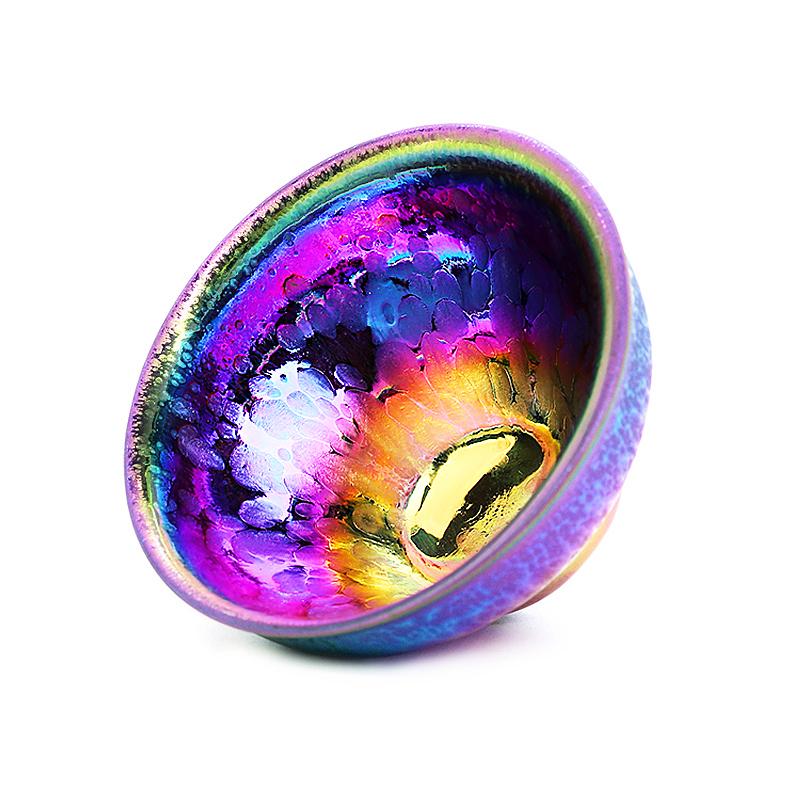
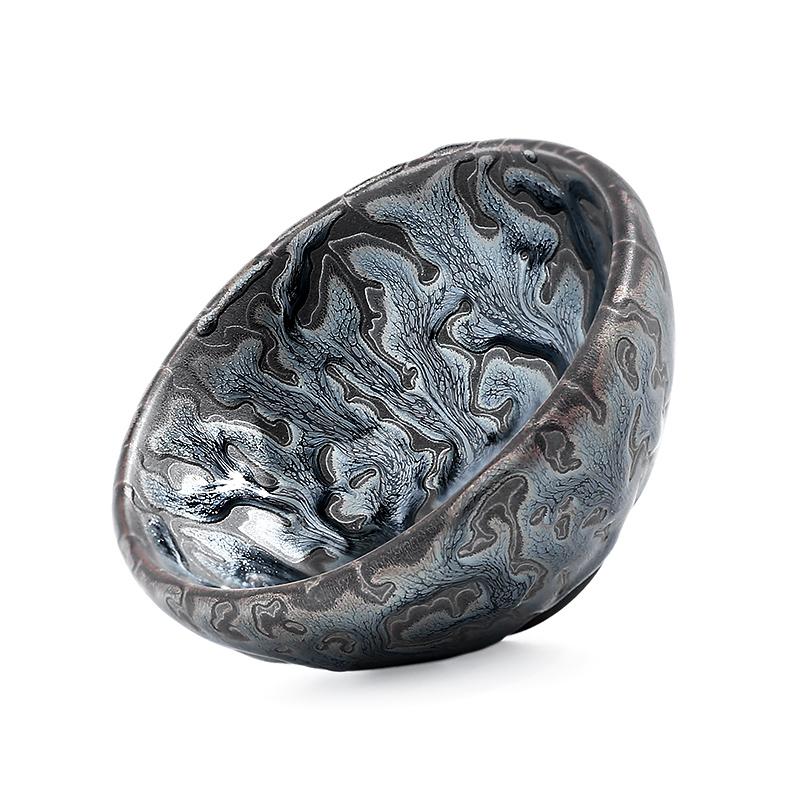
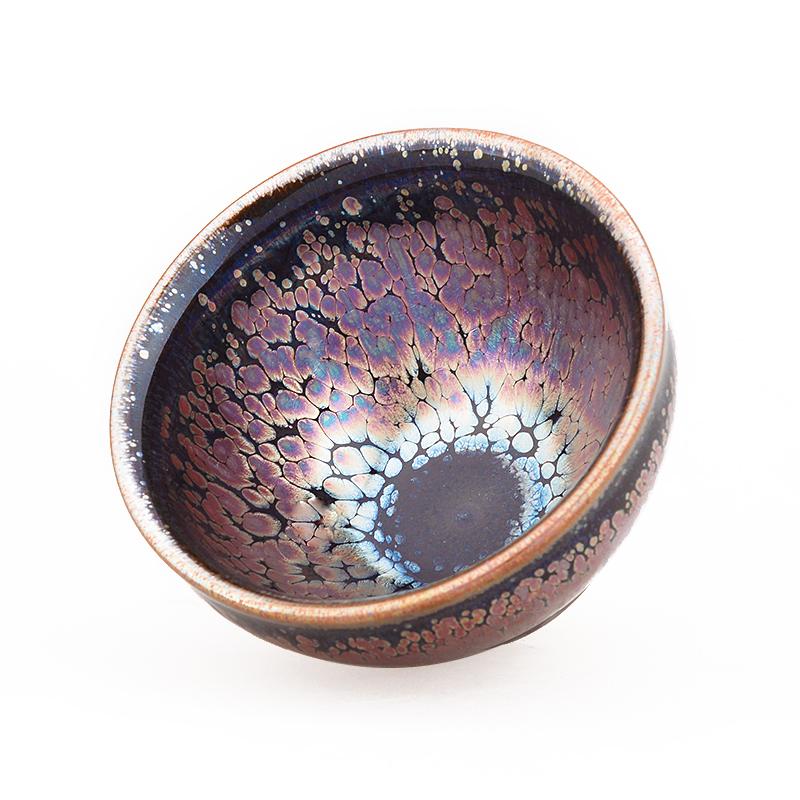
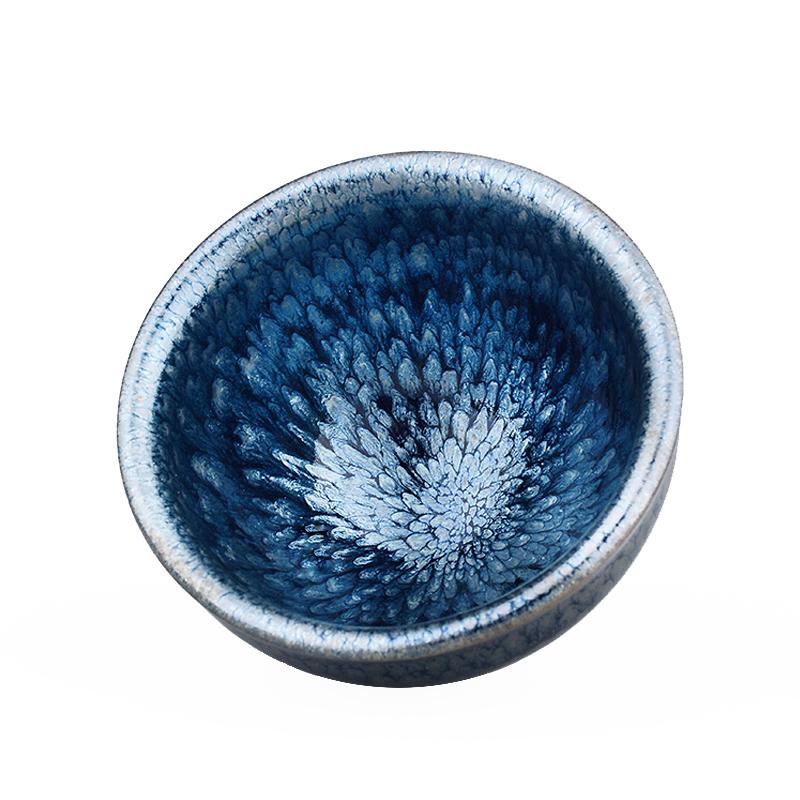
Share:
There is a type of Tenmoku called "Tenmoku nurtured by others."
Understanding Tenmoku is not difficult